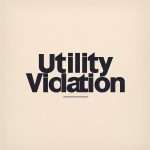Why Choose Credit1solutions.com?
Empowering Your Financial Future
Discover the unique blend of attorney-backed credit repair services and strategic expertise at Credit1solutions.com, designed to maximize your financial recovery and improve your credit score.
The Professional Edge: Attorney-Backed Credit Repair
- Securing Additional Revenue: Our attorney services extend beyond traditional credit repair, aiming to secure additional revenue for clients through damages for inaccurate credit reporting. This approach often results in clients receiving more compensation than their initial investment.
- Flexible, No-Obligation Service: Enjoy the freedom to cancel at any time, ensuring you’re always in control of your financial repair journey.
- Impressive Success Rates for Financial Recovery: With our attorney-backed services, gain expert legal support and the potential for significant financial recovery from credit report damages.
 Avoid Credit Repair Scams: Our legal foundation goes beyond basic credit repair disputes, applying legal tactics to correct inaccuracies with all major credit bureaus.
Avoid Credit Repair Scams: Our legal foundation goes beyond basic credit repair disputes, applying legal tactics to correct inaccuracies with all major credit bureaus.
Tackling Credit Report Errors: Directly challenge and resolve credit report inaccuracies, employing strategies proven to make a real difference, highlighted by the FTC’s emphasis on the pervasive issue of credit report errors.
Empowerment Through Expertise
Expert Support for Navigating Credit Systems: With our team of Certified FICO Credit Experts and Attorneys, we empower clients by illuminating credit decisions and ensuring fair treatment.
Enhancing Consumer Awareness: Our experts demystify the credit system, emphasizing the importance of accuracy in credit reports and the impact of credit scores on financial health and loan availability.

Commitment to Excellence
Credit1solutions means opting for a service that not only aims to repair your credit but also to enhance your financial well-being through strategic legal action and potential financial recovery. Our dedicated teams are committed to providing first-class service, ensuring your journey towards better credit is both successful and rewarding.
Specialized Support for Your Credit Needs
Expert Legal Support: Gain access to specialized legal assistance tailored to fixing your credit report, with a dedicated team navigating the complexities of credit law.
Strategic Timely Action: Assert your legal rights to combat wrongful credit reporting with our strategic, timely approach, setting us apart from typical credit repair companies.
Overcoming Credit & Court Challenges: Our expert intervention is rated first-class, committed to overcoming widespread inaccuracies in credit reporting for the best possible outcome.
Join the Fight Against Credit Report Corruption: Protect Yourself from Common Credit Report Errors and Financial Injustice! Take action now to safeguard your financial future.
 Mixed Credit Files – A mixed credit file occurs whenever a CRA inadvertently comingles the credit histories of two different individuals into a single report. The result is a credit report that contains information belonging to two different consumers, bundled together as if those two people were the same person.
Mixed Credit Files – A mixed credit file occurs whenever a CRA inadvertently comingles the credit histories of two different individuals into a single report. The result is a credit report that contains information belonging to two different consumers, bundled together as if those two people were the same person.
 Inaccurately Reporting Date of First Delinquency– The Fair Credit Reporting Act defines the date of first delinquency as the date at which you first became late and then never brought the account current before the creditor decides to charge it off or send it to collections.
Inaccurately Reporting Date of First Delinquency– The Fair Credit Reporting Act defines the date of first delinquency as the date at which you first became late and then never brought the account current before the creditor decides to charge it off or send it to collections.
 Furnisher Not Notifying CRA’s of Direct Dispute – Because the information that furnishers provide to consumer reporting agencies (CRAs) can have significant consequences for consumers, Congress created consumer protections for furnished information.
Furnisher Not Notifying CRA’s of Direct Dispute – Because the information that furnishers provide to consumer reporting agencies (CRAs) can have significant consequences for consumers, Congress created consumer protections for furnished information.
Collection Agency adding additional fees -Charges can be added, but NOT by the Collection Agency. It is a violation of the law to add any fees to your bill.
 Auto Repossession Violations – this violation can cause serious problems for a consumer, many lenders and car dealerships violate those consumer protections everyday within contracts & illegal sales.
Auto Repossession Violations – this violation can cause serious problems for a consumer, many lenders and car dealerships violate those consumer protections everyday within contracts & illegal sales.

Incorrect Bankruptcy Information – debts not being reported as discharged in bankruptcy or falsely reported as being included in bankruptcy.
 Tenant Screening Violations – all background screening agencies must follow reasonable procedures to ensure that the background reports that they provide to their customers are as accurate as possible.
Tenant Screening Violations – all background screening agencies must follow reasonable procedures to ensure that the background reports that they provide to their customers are as accurate as possible.
 Impermissible Credit Report – requests for credit reports that you did not authorize. This is always a potential problem when you apply for a car loan. Each impermissible hard credit inquiry could decrease your credit score by up to five points.
Impermissible Credit Report – requests for credit reports that you did not authorize. This is always a potential problem when you apply for a car loan. Each impermissible hard credit inquiry could decrease your credit score by up to five points.

Stale Credit Information – especially old medical debt.
Incorrect Payment Histories – which happens often with mortgages and student loans.
 Utility Credit Report Violation – is a credit reporting agency that maintains data, such as payment and account history, reported by member service providers in the telecommunications, pay TV, and utility industries..
Utility Credit Report Violation – is a credit reporting agency that maintains data, such as payment and account history, reported by member service providers in the telecommunications, pay TV, and utility industries..
 Statute Violations – Disregarding a consumers statute of limitations can cause serious damage. Stopping it sooner than later can help decrease damages.
Statute Violations – Disregarding a consumers statute of limitations can cause serious damage. Stopping it sooner than later can help decrease damages.

Reported Public Records – including paid judgments and liens that are not reported as satisfied.

Balance After Discharge – Discharge releases the debtor from liability for certain debts, so the debtor is no longer legally required to pay the balance. The discharge also prohibits creditors from collecting discharged debts in any manner, including through lawsuits, demand letters, and telephone calls.
Empower yourself today and reclaim financial justice!


